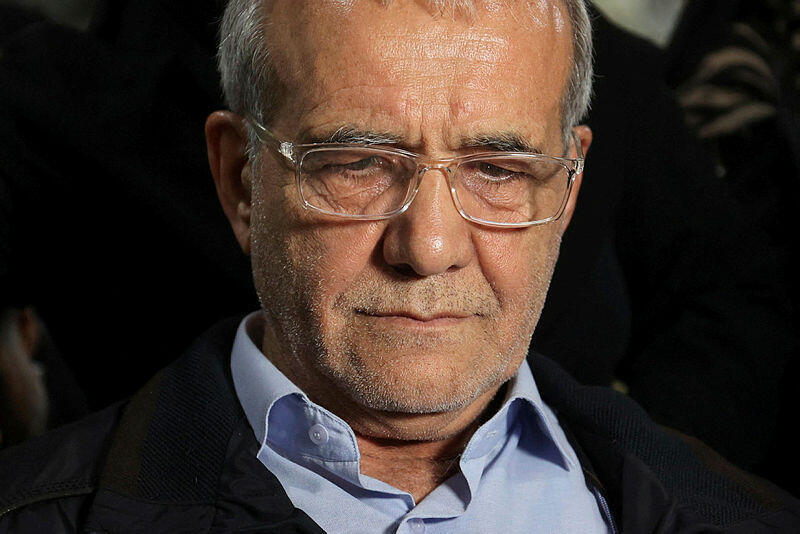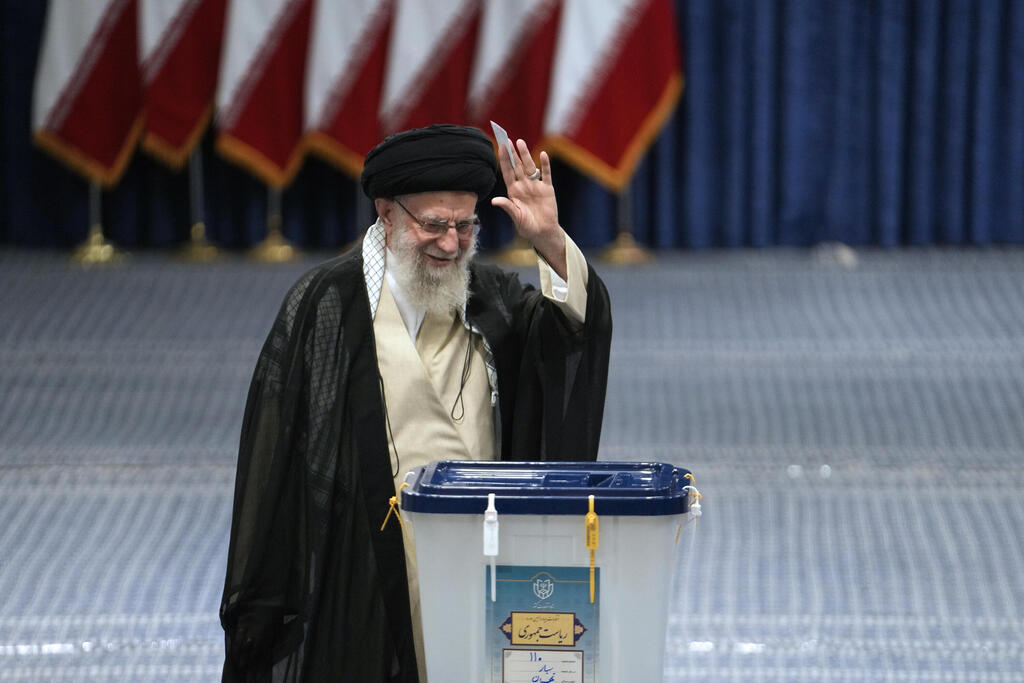Getting your Trinity Audio player ready...
Two weeks after Hamas leader Ismail Haniyeh was assassinated in Tehran, senior Iranian officials continue to make serious threats against Israel, but no action has materialized.
Earlier this week, Ali Fadavi, deputy commander of the Revolutionary Guards, emphasized in an interview with the Hezbollah-affiliated Lebanese TV channel Al-Mayadeen that Iran's Supreme Leader Ali Khamenei had given "clear and explicit" instructions to avenge Haniyeh's death, to be executed in the best possible manner. The Revolutionary Guards' spokesperson also declared that the assassination violated the UN Charter and that the "Zionist regime" would face repercussions for this "foolish act" at an appropriate time.
Despite the tough talk, the Iranian leadership seems to be wrestling with the right course of action, particularly due to fears of escalating into an unwanted direct military confrontation with Israel, or perhaps even the United States. Insights into this internal debate were highlighted in a report published this week by the British Telegraph, which revealed a disagreement between Iran's new president, Masoud Pezhkian, and senior Revolutionary Guards officials regarding the response.
According to the report, the new president insists on avoiding a full-scale war with Israel due to potential repercussions for Iran and believes the response should target Israeli bases in neighboring countries. In contrast, senior Revolutionary Guards officials advocate for a direct attack on Tel Aviv and other cities in Israel, focusing on military bases. The British newspaper noted that the final decision on this matter rests with leader Khamenei.
A time for aggression, a time for restraint
Indeed, Khamenei faces a tough dilemma these days. On one hand, Haniyeh's assassination in the heart of Tehran is seen as a particularly humiliating act that demands a harsh response against Israel and as further evidence to re-establish the new equation set in Tehran following the assassination of the Revolutionary Guards' commander in Syria and Lebanon at the beginning of April. On the other hand, the 85-year-old Ali Khamenei is well aware of the potential consequences of a significant Iranian attack on Israel, especially as the president, who just began his term following the sudden death of Ebrahim Raisi, is taking his initial steps on the long road to rehabilitating his country's faltering economy.
After the Iranian attack on Israel in April, a senior American official told ABC News that his country had relied too much on the mistaken perception that Iran's leader is cautious and would never order a direct attack on Israel. Iran's leader is a revolutionary ideologue who has never abandoned his revolutionary worldview.
2 View gallery


Iranian President Masoud Pezeshkian
(Photo: Majid Asgaripour/WANA (West Asia News Agency))
Nevertheless, since being appointed Iran's leader in the summer of 1989, Khamenei has generally adopted a cautious policy, especially in foreign relations, to ensure his regime's survival. For example, in 2003, he agreed to freeze the activities of the group working to achieve military nuclear capability, fearing that after the American invasion of Iraq, Iran might be next. While his statements often reflect an uncompromising revolutionary approach, his policy frequently demonstrates caution.
Therefore, his decision to attack Israel does not necessarily indicate a significant change in his decision-making patterns or a willingness to drag his country into a full-scale military confrontation. Even in the past year, the Iranian leadership has demonstrated a willingness for calculated risks while showing considerable restraint and caution. For instance, Iran's effort to avoid military confrontation is evident in its conduct following the deaths of three American soldiers in a drone attack on a base in northern Jordan at the end of January 2024. Less than 48 hours after the action, attributed to pro-Iranian Shia militias in Iraq, the commander of the Quds Force of the Revolutionary Guards arrived in Baghdad and instructed the militia commanders to cease attacking U.S. bases in the area to avoid a harsh American response against the militias and even direct action against Iran itself.
Khamenei's conduct in the past two weeks may suggest he continues the cautious approach he has generally adopted during his 35-year rule, even if he ultimately makes a decision involving calculated risks he avoided in the past. In the absence of a decision from the leader, it is not surprising that Iran is trying to buy more time. In this context, the report by Reuters, citing three senior Iranian officials, indicates that the only way to delay Iran's direct response is a breakthrough in cease-fire talks.
 Raz Zimmt
Raz ZimmtThe report also connects to the statement by Iran's representative at the UN that ending the war in Gaza is Iran's top priority, even if there is not necessarily a connection between the cease-fire and Iran's right to respond to Haniyeh's assassination. While Iran's leader continues to deliberate, his loyalists are trying to buy more time until the conditions for his final decision mature or are implemented. Meanwhile, Israel continues to await an Iranian response with tension while incurring escalating economic costs. From Iran's perspective, this alone constitutes a significant achievement.
- Dr. Raz Zimmt is a senior researcher and co-editor of the Institute for National Seurity Studies' journal, Strategic Assessment


